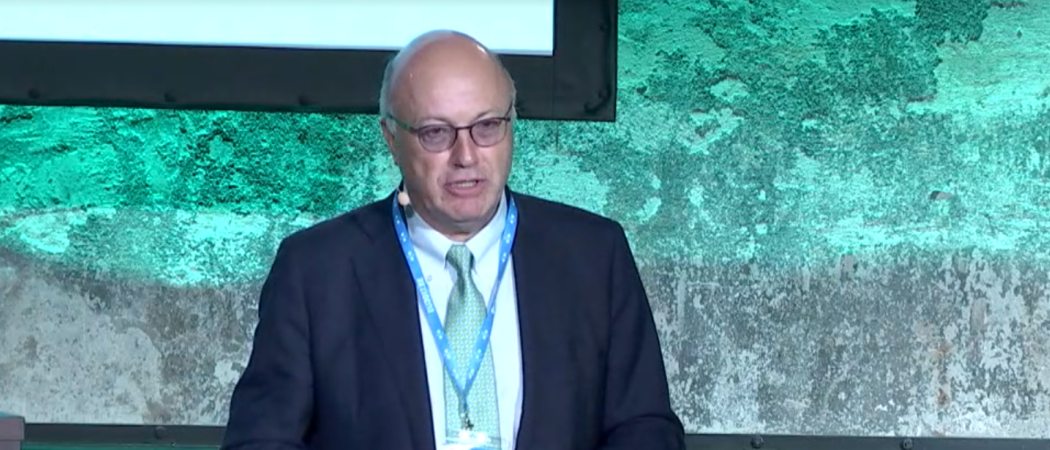While the country has a policy of military neutrality, the changing nature of threats, and Brexit, have shifted attitudes, Mark Ferguson says

Mark Ferguson, Ireland’s chief science adviser.
Ireland will participate in EU’s new defence research programme out of pragmatism, according to Ireland’s chief science adviser.
A long-standing government policy of military neutrality will not deter Irish researchers from vying for the new EU money, Mark Ferguson the Euroscience Open Forum on Wednesday.
“The Irish approach has changed. Normally, the population would not be positive about EU defence, but now people understand the necessity to have it,” Ferguson said.
In June the European Commission unveiled details of its first ever defence research fund, with €4.1 billion for research, €8.9 billion for prototype development and €650 million for disruptive technologies, in fields including cyber security, border control, hi-tech uniforms, drones and radar technology.
There are pockets of opposition to the new EU funding – most notably in Belgium, the UK, Italy and Germany – from researchers who argue that it crosses an ethical line. In Germany, for instance, some 30 universities renounce military research in so-called civil clauses, which say that universities will only conduct research for civilian purposes.
“The word ‘defence’ has taken on a new meaning,” Ferguson argues. “Now, there’s no resistance in Ireland whatsoever on issues like cybersecurity, because we realise it’s the warfare of the future.
“But I don’t think we’ll be building a nuclear warship any time soon,” he said.
After Luxembourg, Ireland is the second lowest spender on defence relative to size of its economy in the EU.
The UK’s impending exit from the EU has deepened the belief that Ireland must become less reliant on others, Ferguson said. “We have traditionally relied a lot on the UK for defence. That might not be the case after Brexit,” he said.





 A unique international forum for public research organisations and companies to connect their external engagement with strategic interests around their R&D system.
A unique international forum for public research organisations and companies to connect their external engagement with strategic interests around their R&D system.